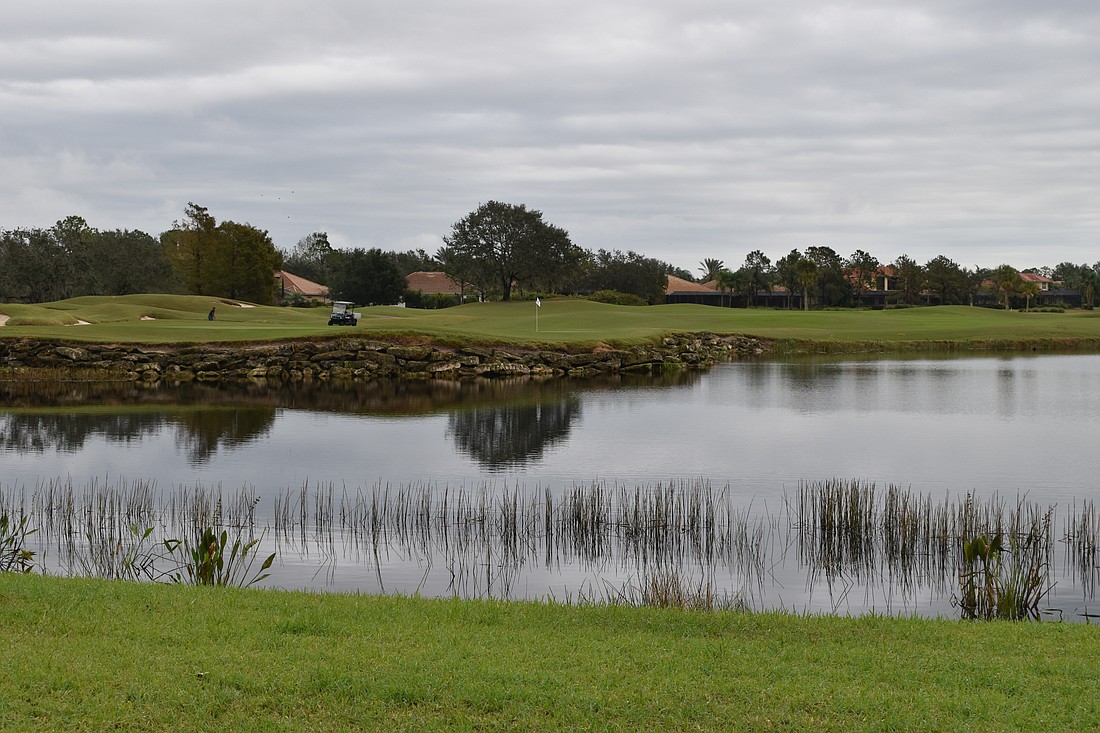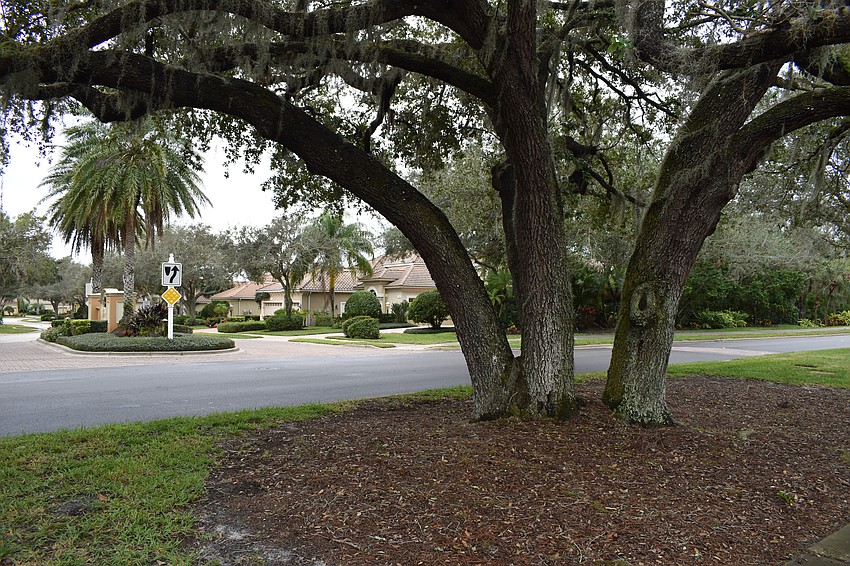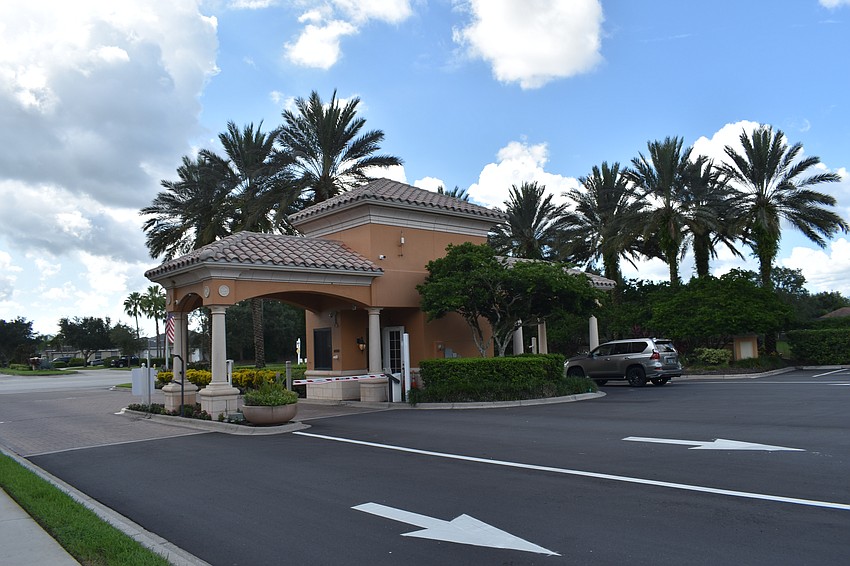- November 25, 2024
-
-
Loading

Loading

Many repairs, upgrades and strategies are planned for Lakewood Ranch CDDs in the upcoming year, but transferring the potable water system in CDD6 to Manatee County tops the list.
Here is a look at some of the priorities for Lakewood Ranch CDDs in 2023.
Chair James Rogoze said CDD6 has submitted its top three priorities to Inter-District Authority CEO Steve Zielinski.
The district’s main priority will be transferring ownership of its potable water system to Manatee County, a project Rogoze said he expects will be initiated in January and hopefully completed by the end of the year.
The transfer will mark the third and final phase of a project that included the turnover of its sewer system in September 2022 after extensive maintenance, checks, and upgrades to align it with county's standards, and the transfer of its lift station in 2018.
Zielinski said in September the transfers, so far, have cost approximately $446,000.
Rogoze said he hopes the remaining work will pose a lower cost than the amount already spent, but said regardless, the end result will be a reduction in residents’ fees, along with improvements in maintenance. Rogoze the amount the fees will be reduced has not yet been determined.
With the knowledge and wide availability of county staff, he said, issues will be fixed more quickly, without the need to seek out a contractor during an emergency.
The first step in the process will be a January meeting with Manatee County.
He said this meeting will be notable for introducing the district to a new utilities team, following a county-wide initiative to restructure various government departments.
The past year has seen the departure of Utilities Director Mike Gore as well as Deputy Director of Utilities Jeffrey Goodwin, and the introduction of a new director, Evan Pilachowski, and new deputy director, Courtney De Pol.
“It will be a matter of just saying, ‘Looking forward to working with you,'” Rogoze said.
The second priority for CDD6 is dealing with the rapid rise in interest rates and finding out how to best earn money off its reserves.
Rogoze said with close to $2 million in reserves and an approximately 4.5% rate of return if invested wisely, the result would be about $90,000 in fees that residents will not need to pay.
“We want to make sure that we are earning the maximum within the boundaries of safety, and within the boundaries of what the state of Florida allows, to bring the rate of return on money up significantly from where it was,” he said.
The third priority is to maintain the pristine appearance of the district including its gates, and landscaping.

“We want it to look good, and we want it to function, and we want it to be a community where you are living in that Florida outdoor lifestyle, which everybody really likes,” he said.
He said, starting in January, the district will be power washing and repainting all monuments, which are the large cement and stucco signs identifying the different areas of Country Club.
Currently, the monuments feature what he called an orange, Mediterranean-style coloring, but are set to be repainted with alabaster and black lettering and gold highlights around the edges, in contrast to the current gold lettering with black outlines.
He said the design should appear sharper and more modern than the current one, which was created about 18 years ago.
Afterwards, a review will take place of landscaping around the monuments in order to remove any dying shrubbery and replace it with the appropriate varieties.
A new lighting system will be installed for the monuments. Rogoze said the current system did not function dependably.
CDD2 Chair Peter Bokach said he hopes his board will pursue privatization of roads in his district during the coming year.
He said on Jan. 17 his board will hear advice from Inter-District Authority attorneys, who are researching the topic of road privatization.
Currently, the roads of Lakewood Ranch County Club, which spans CDDs 2, 5, and 6, remain open to the public, which means the districts do not have the ability to prevent nonresidents from entering through the gates.
Zielinski said this situation was the result of public funds having been used for construction of the roads, and that some residents had expressed dissatisfaction with the situation, having not been properly informed on community access before purchasing their homes.
Bokach said he expects the task would be an “uphill swim.”

Zielinski said the upcoming meeting will help explain the financial cost of privatization, and whether it is a realistic goal.
Bokach also said the district is keeping a close eye on the aging of the community. Eight to 10 years ago, he said, it had developed a long-range beautification plan, which he hopes to revise.
He said it was important to look into the operation of the gatehouses, particularly during the hours when visitors arrive. In the past, issues had been sporadically reported involving delays in service, at guardhouses as well as virtual kiosks, in Districts 2, 5, and 6.
Zielinski said on Dec. 22 that gate operations appeared to remain consistent with the results of a July study.
That study found that 90% of visitors were reached by an attendant within 90 seconds, 3%-5% between 90 seconds and three minutes, and 5%-7% after three minutes or longer.
The Town Hall recently secured a new provider, First Coast Security, for the district, whose contract began on Jan. 1, but Bokach said switching contractors might not be the only solution.
“While the expectation is perfection, I think reality says that that's not quite going to happen,” Bokach said. “So how do we minimize the times when it doesn't work?”
He also said the district will be working with the county to find out how it can turn over its sewer system, which had been planned to follow the transfer of CDD6's system.
Zielinski said the district would be meeting with the county in January to determine the cost.
Bokach said the district needs to look further into the wishes of residents, in order to understand what changes they would like to see in the community.
“That's something we need to as a board have a conversation on — what processes we want to use to (secure) feedback?" he said.
CDD4 Chair Michael Griffin said the board will be examining its infrastructure in 2023. He also said despite using a schedule that estimates the rates of depreciation for different community assets, he wants to be proactive and replace materials ahead of schedule if needed.
Griffin said the board is glad the community garden has returned to Greenbrook Adventure Park.
Previously, the garden, which provides users both inside and outside of Greenbrook with their own plot of land for growing plants of their choice, fell into a state of disuse and disrepair after the COVID-19 pandemic.
Lakewood Ranch Community Activities is still continuing its work with the Inter-District Authority to create a reconstructed garden and a set of guidelines for its use.
Keith Pandeloglou, executive director of Lakewood Ranch Community Activities, said the garden, which had not had a definite opening date, had seen some delays in its schedule due to Hurricane Ian repairs around Lakewood Ranch.
Martin Cohn, the chair of CDD2, said an important initiative being pursued in 2023 would be FEMA reimbursements for the damage caused by Hurricane Ian.
The costs across all of the Lakewood Ranch districts total $1,150,000 Zielinski said on Dec. 22.
On Dec. 14, he said he had been contacted by a FEMA representative, who would be confirming the Inter-District Authority's eligibility and then would help to start the reimbursement process.
However, he said it is unlikely that the reimbursements will be received in 2023.